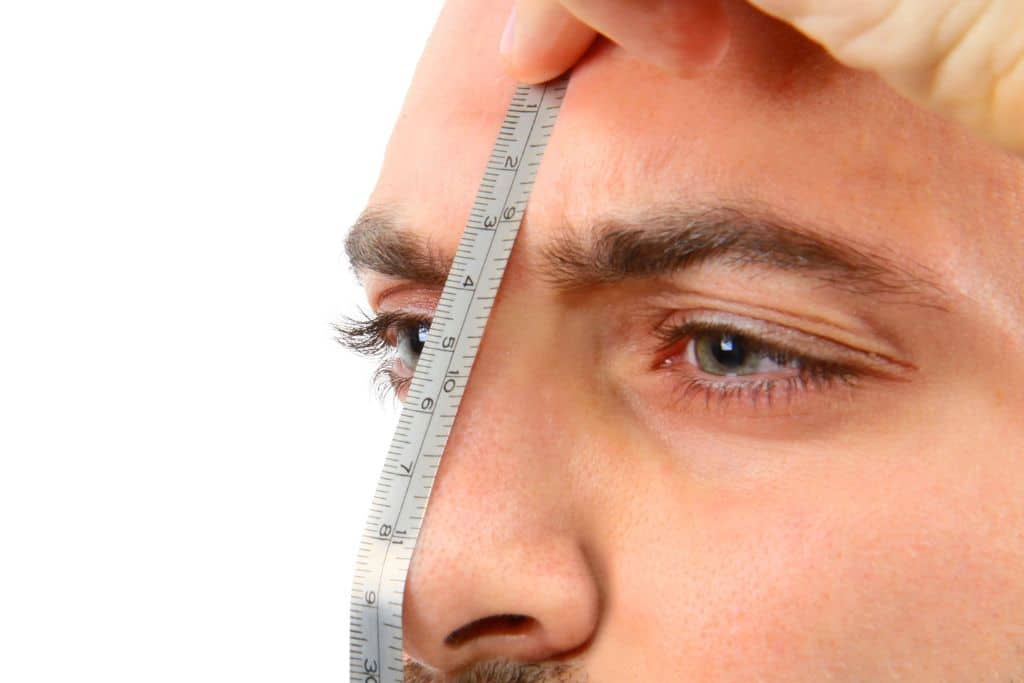Diet fatigue is a common experience for those who are trying to lose weight. It's that feeling of being tired, sluggish, and unmotivated that can make sticking to a diet plan seem impossible. Many people wonder how long diet fatigue lasts and whether it's normal to experience it.
The truth is, diet fatigue can last anywhere from a few days to a few weeks, depending on the individual. It's a natural part of the weight loss process, as your body adjusts to a new way of eating and expending energy. However, if you find that your fatigue is lasting longer than a few weeks or is accompanied by other symptoms, it's important to speak with a healthcare professional to rule out any underlying health issues.
It's important to remember that diet fatigue is a normal part of the weight loss journey and doesn't necessarily mean that you're doing anything wrong. With patience, self-compassion, and the right support, you can overcome diet fatigue and reach your weight loss goals.
Contents
Understanding Diet Fatigue

Diet fatigue is a common experience that many people face when trying to lose weight. It is a feeling of exhaustion and lack of motivation that can occur when following a diet plan for an extended period.
The duration of diet fatigue can vary from person to person. Some people may experience it for a few days, while others may experience it for several weeks or even months. However, it is important to note that diet fatigue is a normal part of the weight loss journey, and it does not necessarily mean that you are doing something wrong.
Diet fatigue can be caused by a variety of factors, including a lack of variety in your diet, a decrease in calorie intake, and a lack of energy due to exercise. When you restrict your calorie intake, your body may also experience a decrease in energy levels, which can lead to diet fatigue.
To combat diet fatigue, it is important to take a balanced approach to weight loss. This includes eating a variety of healthy foods, staying hydrated, and getting enough rest and exercise. It is also important to set realistic goals and expectations for yourself, as well as to seek support from friends, family, or a healthcare professional.
In summary, diet fatigue is a normal part of the weight loss journey and can vary in duration from person to person. It is important to take a balanced approach to weight loss and seek support when needed.
Duration of Diet Fatigue

Diet fatigue is a common phenomenon that occurs when people restrict their calorie intake for an extended period. It is characterized by feelings of exhaustion, irritability, and a lack of motivation. The duration of diet fatigue can vary depending on several factors, including the severity of the calorie restriction, the type of diet, and the individual's overall health.
Research suggests that diet fatigue typically lasts for a few weeks to a few months, depending on the individual. For example, a study published in the International Journal of Obesity found that participants who followed a low-calorie diet for 12 weeks experienced significant improvements in weight loss, but also reported increased feelings of fatigue and reduced motivation. However, after the 12 weeks, the participants reported feeling less fatigued and more motivated to continue their diet.
Another study published in the American Journal of Clinical Nutrition found that participants who followed a very low-calorie diet for 16 weeks experienced significant weight loss but also reported increased feelings of fatigue and irritability. However, after the 16 weeks, the participants reported feeling less fatigued and more motivated to continue their diet.
It is important to note that the duration of diet fatigue can vary depending on the individual's overall health and the severity of the calorie restriction. For example, individuals who are already experiencing high levels of stress or who have underlying health conditions may experience more prolonged periods of diet fatigue. Additionally, individuals who are following very low-calorie diets may experience more severe symptoms of diet fatigue than those who are following less restrictive diets.
In summary, diet fatigue is a common phenomenon that occurs when people restrict their calorie intake for an extended period. The duration of diet fatigue can vary depending on several factors, including the severity of the calorie restriction, the type of diet, and the individual's overall health. However, research suggests that diet fatigue typically lasts for a few weeks to a few months, and individuals typically experience a reduction in symptoms over time.
Factors Influencing Diet Fatigue Duration

Diet fatigue is a common phenomenon that occurs when individuals experience a lack of motivation and energy while following a diet. The duration of diet fatigue can vary depending on several factors, including individual metabolism, diet type, physical activity level, and mental health status.
Individual Metabolism
Individual metabolism can play a significant role in the duration of diet fatigue. Some people have a faster metabolism, which means they burn calories more quickly. These individuals may experience diet fatigue for a shorter period than those with a slower metabolism. Additionally, individuals with a slower metabolism may find it harder to lose weight, which can lead to prolonged diet fatigue.
Diet Type
The type of diet an individual follows can also influence the duration of diet fatigue. Diets that are overly restrictive or eliminate entire food groups can lead to diet fatigue. For example, a low-carb diet can cause fatigue due to the lack of carbohydrates, which are a primary source of energy for the body. On the other hand, a balanced diet that includes a variety of foods can help prevent diet fatigue.
Physical Activity Level
Physical activity level can also impact the duration of diet fatigue. Individuals who engage in regular physical activity may experience less diet fatigue than those who are sedentary. Exercise can help boost energy levels and improve mood, which can help combat diet fatigue. On the other hand, over-exercising or not getting enough rest can lead to increased fatigue and worsen diet fatigue.
Mental Health Status
Mental health can also play a role in the duration of diet fatigue. Individuals who experience high levels of stress or anxiety may find it more challenging to stick to a diet and may experience diet fatigue for a more extended period. Additionally, individuals with depression may experience decreased motivation and energy, which can exacerbate diet fatigue.
In summary, the duration of diet fatigue can vary depending on individual factors such as metabolism, diet type, physical activity level, and mental health status. By understanding these factors, individuals can make adjustments to their diet and lifestyle to help prevent and manage diet fatigue.
Effects of Long-Term Diet Fatigue

Long-term diet fatigue can have a number of negative effects on both physical and mental health. Here are some of the most common effects:
- Slower Metabolism: When you are in a state of diet fatigue for a long time, your metabolism can slow down. This is because your body is trying to conserve energy, and it may start to burn fewer calories even when you are exercising or engaging in other physical activities. This can make it harder to lose weight and maintain a healthy weight.
- Increased Risk of Chronic Diseases: Diet fatigue can also increase your risk of chronic diseases such as diabetes, heart disease, and high blood pressure. This is because when you are tired and stressed, your body produces more cortisol, which is a hormone that can increase inflammation and damage your cells over time.
- Decreased Energy and Motivation: When you are in a state of diet fatigue for a long time, you may start to feel tired, lethargic, and unmotivated. This can make it harder to stick to your diet and exercise routine, and it can also affect your work and personal life.
- Poor Sleep Quality: Diet fatigue can also affect your sleep quality, making it harder to fall asleep or stay asleep throughout the night. This can further exacerbate feelings of tiredness and fatigue during the day.
- Mental Health Issues: Long-term diet fatigue can also lead to mental health issues such as anxiety and depression. This is because when you are constantly stressed and tired, it can take a toll on your mental health and well-being.
Overall, it is important to address diet fatigue and find ways to manage it in order to avoid these negative effects on your health.
Managing Diet Fatigue

Diet fatigue is a common experience for many people trying to lose weight. It can be discouraging and make it difficult to stick to a healthy eating plan. However, with the right strategies, it is possible to manage diet fatigue and stay on track with your weight loss goals.
Balanced Nutrition
One of the most important ways to manage diet fatigue is to ensure that you are getting balanced nutrition. This means eating a variety of foods from each food group, including fruits, vegetables, whole grains, lean proteins, and healthy fats. By providing your body with the nutrients it needs, you can help reduce feelings of fatigue and improve your energy levels.
Regular Exercise
Regular exercise is another important way to manage diet fatigue. Exercise can help boost your energy levels and reduce feelings of fatigue. It can also help you burn more calories and lose weight more effectively. Aim for at least 30 minutes of moderate-intensity exercise most days of the week, such as brisk walking, cycling, or swimming.
Stress Management
Stress can also contribute to diet fatigue. When you are stressed, your body produces cortisol, a hormone that can make you feel tired and sluggish. To manage stress, try relaxation techniques such as deep breathing, meditation, or yoga. You may also find it helpful to talk to a friend or therapist about your stressors.
Adequate Rest
Finally, getting adequate rest is essential for managing diet fatigue. Aim for 7-9 hours of sleep each night and try to establish a regular sleep routine. This can help improve your energy levels and reduce feelings of fatigue during the day.
By following these strategies, you can effectively manage diet fatigue and stay on track with your weight loss goals. Remember to be patient and persistent, and don't hesitate to seek support from friends, family, or a healthcare professional if you need it.
When to Seek Professional Help
If you have been experiencing diet fatigue for an extended period, it may be time to seek professional help. Here are some signs that you should consider seeing a doctor or a registered dietitian:
- If your fatigue is severe and persistent, it could be a sign of an underlying medical condition. In this case, you should seek medical attention to rule out any serious health issues.
- If you are experiencing other symptoms such as dizziness, shortness of breath, or chest pain, you should seek immediate medical attention.
- If you have been dieting for an extended period and have not seen any progress, it may be time to seek the help of a registered dietitian. A registered dietitian can help you create a personalized nutrition plan that meets your specific needs and goals.
- If you are experiencing significant emotional distress related to your diet, such as anxiety or depression, you should seek the help of a mental health professional. A mental health professional can help you address any underlying emotional issues that may be contributing to your diet fatigue.
Remember, it is essential to take care of your physical and emotional health. Seeking professional help can be the first step in getting the support you need to overcome diet fatigue and achieve your health goals.
Frequently Asked Questions
How can I avoid feeling fatigued when dieting?
To avoid feeling fatigued when dieting, it is essential to ensure that you are consuming enough calories and nutrients to support your body's needs. You can do this by adopting a balanced diet that includes a variety of nutrient-dense foods such as fruits, vegetables, whole grains, lean proteins, and healthy fats. Additionally, make sure to stay hydrated by drinking plenty of water throughout the day.
What are the symptoms of diet fatigue?
The symptoms of diet fatigue can vary from person to person but may include feelings of exhaustion, weakness, dizziness, and difficulty concentrating. Some people may also experience headaches, irritability, and mood swings.
Why do I feel sleepy when I'm dieting?
Feeling sleepy when dieting is often due to a lack of energy caused by a calorie deficit. When you consume fewer calories than your body needs, it can lead to a drop in blood sugar levels, which can make you feel tired and sluggish.
What does it feel like to experience diet fatigue?
Diet fatigue can feel different for everyone, but it is often described as a feeling of extreme exhaustion and lethargy that can make it difficult to perform daily tasks. Some people may also experience mental fatigue, which can make it challenging to concentrate or focus on tasks.
How long does it typically take for diet fatigue to go away?
The length of time it takes for diet fatigue to go away can vary depending on several factors, including the severity of the fatigue, the individual's overall health, and the type of diet being followed. In general, most people find that their fatigue improves within a few days to a few weeks of making dietary changes.
Are there any strategies for preventing diet fatigue?
To prevent diet fatigue, it is essential to adopt healthy eating habits that include a balanced diet with a variety of nutrient-dense foods. Additionally, make sure to consume enough calories to support your body's needs and stay hydrated by drinking plenty of water throughout the day. Getting enough sleep and engaging in regular physical activity can also help prevent diet fatigue.






